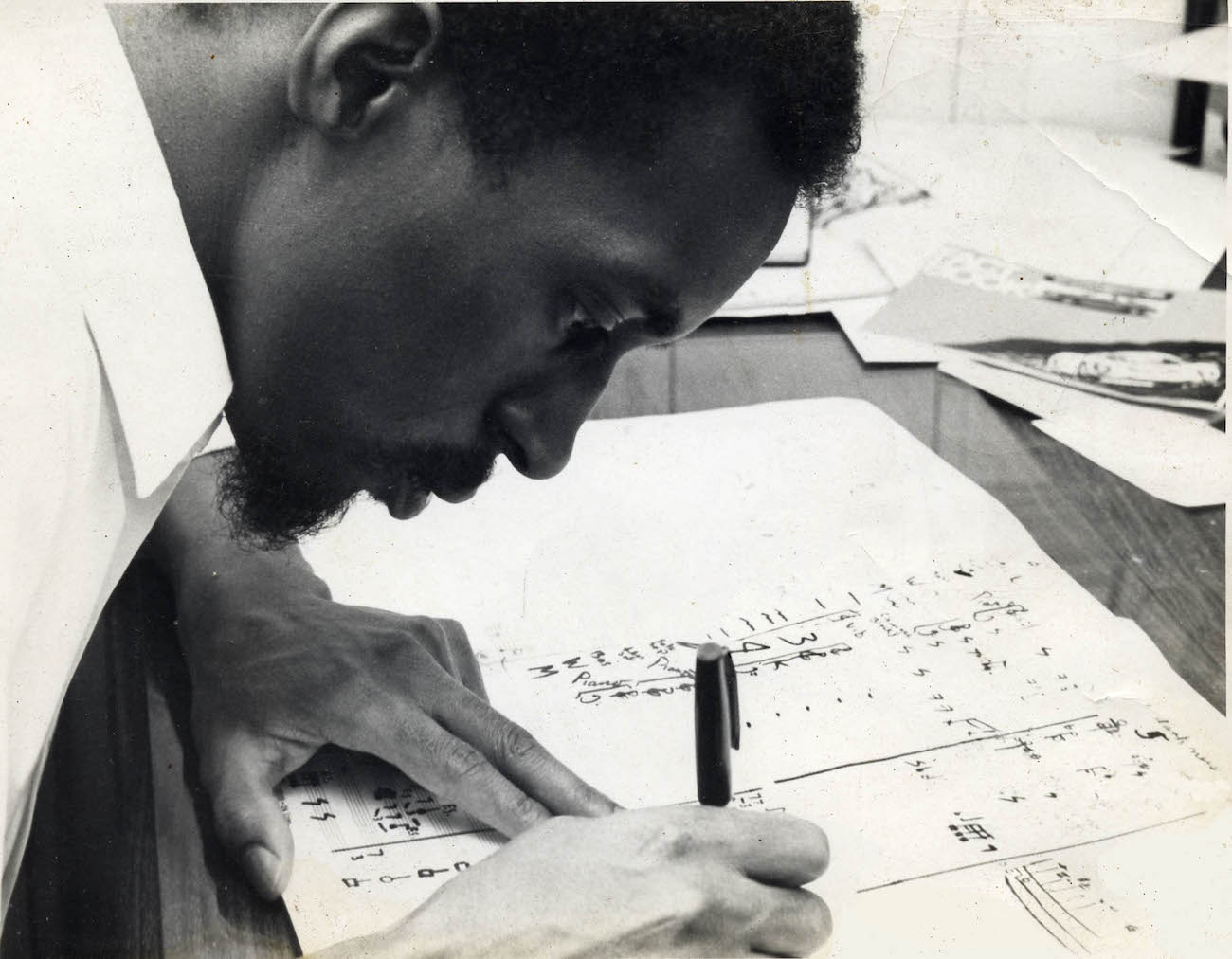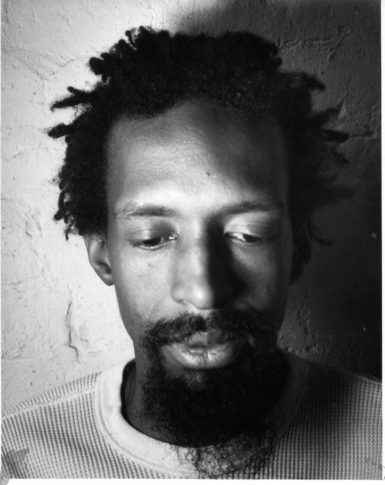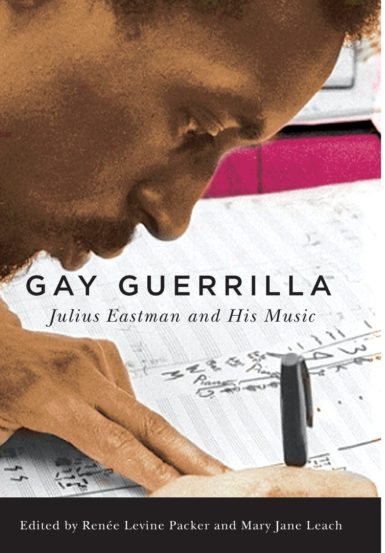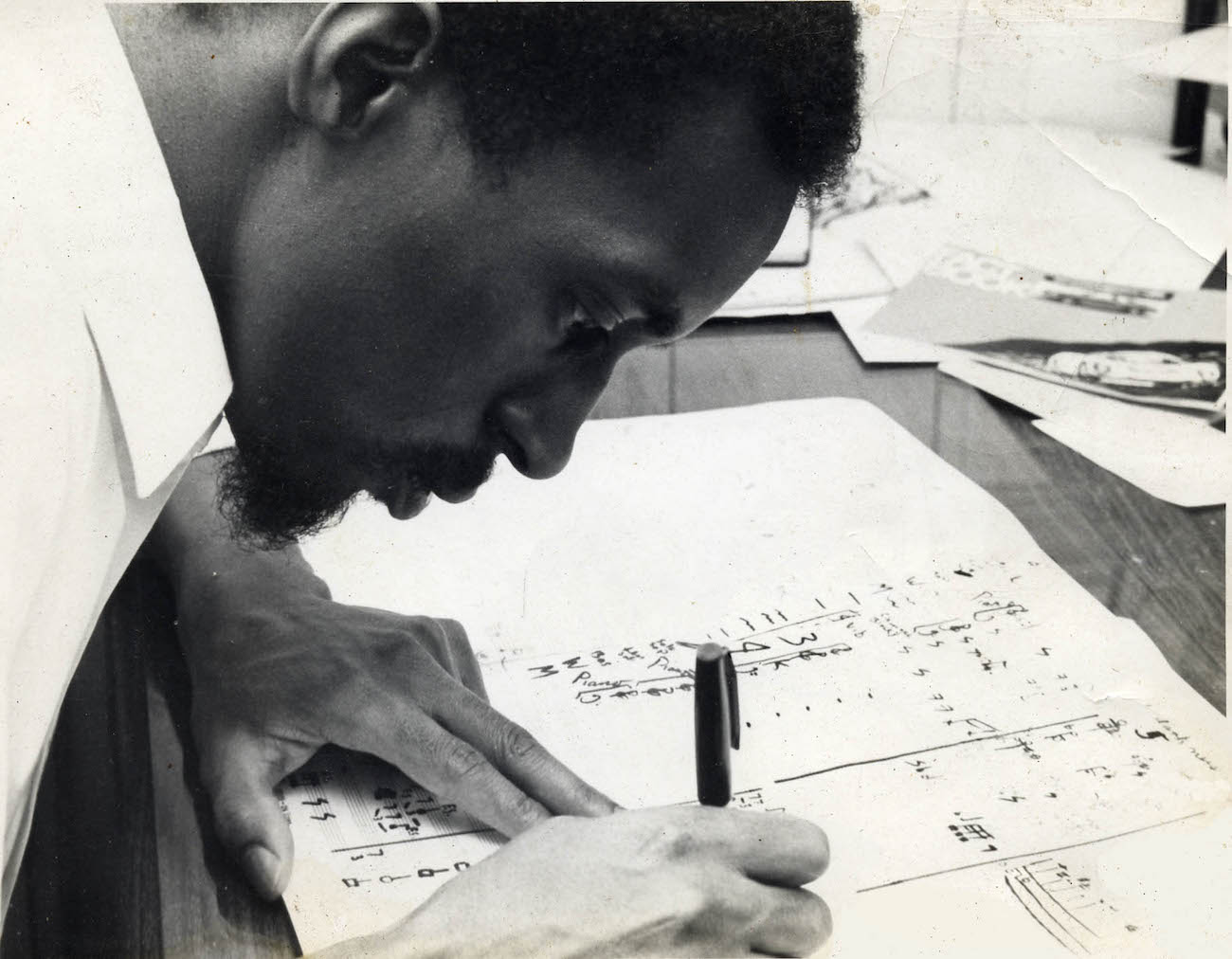[ad_1]

Julius Eastman.
D. W. BURKHARDT
Almost 30 years after his death, the great musician Julius Eastman is still a source of trickster hijinks—and a subject who taps into timely concerns. Recently I was asked to present a lecture on him and his work at the OBEY Convention, a music and sound festival in Halifax, Nova Scotia. But rather than a fruitful discussion of Eastman’s probing, piercing minimalist music and legacy as an overlooked composer only now getting his due, the situation turned into a referendum on complicated questions: who gets to hold forth on artists of different identities, and on whose terms?
A gay black composer who was a colleague of mine and a subject of great interest for me ever since his death in 1990, Eastman wrote some compositions with controversial titles. One of them figured in the title of a book I co-edited, Gay Guerrilla: Julius Eastman and His Music (University of Rochester Press, 2015). Gay Guerilla is the title of one of a group of three pieces from around 1980 that are usually played on four pianos, and two more of the kind from the late ’70s are Evil Nigger and Crazy Nigger. The titles are obviously problematic and create all kinds of issues regarding how to refer to them. At their premiere at Northwestern University in 1980, due to protests at the time, the titles weren’t printed in the program. Instead, Eastman gave a spoken introduction explaining why he titled the pieces the way he did.

Julius Eastman.
PHOTOGRAPHER UNKNOWN/COURTESY R. NEMO HILL
“There is a whole series of these pieces,” he says in a recording of his remarks “They are called the ‘Nigger’ series. Now the reason that I use that particular word is because for me it has a, what is, what I call a basicness about it … and what I mean by ‘nigger’ is that thing which is fundamental, that person or thing that obtains to a basicness, a fundamentalness, and eschews that thing which is superficial or, what we can say, elegant. So that a nigger for me is that kind of thing which attains himself or herself to the ground of anything. You see, and that’s what I mean by nigger, so there are many niggers, many kinds of niggers. There might be, there are of course 99 names of Allah and there are 52 niggers. And so therefore we are playing two of these ‘Niggers.’ ”
I am fully aware of how controversial these titles are and keep trying to figure out what approach to take to address them: don’t repeat the exact titles and ignore the wish of the composer, or cite them as intended and risk offending some members of the audience? Here is Eastman the trickster at work, creating a problem for which there is no good solution. I can almost hear him cackling away as he takes in peoples’ discomfort from beyond.
My solution for lectures in the past has been to play Eastman’s spoken explanation before I start, followed by a warning and an apology in advance for articulating words that are so offensive. Near the end of my talk I discuss the arc of Eastman’s titling tendencies—from early pieces with conventional titles (Sonata and Birds Fly Away) and suggestive ones (Touch Him When and Joy Boy) to the Nigger series and on to religious invocations (The Holy Presence of Joan d’Arc and Buddha). I cite the problematic titles just once at the beginning, and then subsequently refer to them indirectly. This is what I did at the OBEY festival in June.
But in a pre-planned group discussion following my talk, I soon realized that the subject wasn’t going to be Eastman and his music but instead an inquisition into me that would wind up marginalizing—again, as had happened to him so often in the past—the true subject at hand. What I hadn’t known was that there had been earlier discussions before the festival about whether it would be ethical for me, a white woman, to speak about a gay black man, and that the moderator of the post-lecture discussion—the leader of an activist group of queer people of color—agreed to take part in what I later learned would be characterized as a “facilitation that unpacks privilege in the conversation around Eastman’s work and Mary Jane’s life in relation thereof.”
What was missing in that premise is the reason why I find it so important to speak and write about Eastman: In a time when identity politics command so much attention—most of it well-deserved and long past its due—it’s also important to stress that he was more than a gay black man. He was also a musician and composer of immense talent. While I am not a gay black man, I am a musician and composer, and Eastman and I were colleagues, having first met in 1981 at a rehearsal of a piece by fellow composer Hugh Levick.

Mary Jane Leach.
JORIS-JAN BOS
After trying to find one of Eastman’s pieces eight years after he died and learning that most of his music was lost, I began to search for scores and recordings—a search that resulted in the first commercial releases of his work. I produced two of them—the 3-CD set Unjust Malaise (2005) and The Zürich Concert (2017)—and helped facilitate the release of Femenine (2016) while also unearthing other recordings and scores. It was an interest in Eastman’s music that got me started on the search, and I have by default become a specialist on his work and a primary source for information and research about him. Until recently I was working basically alone, acting as a kind of clearing house such that when people found something, they could contact me and figure out what to do with what they had. That is now mercifully changing as many others are researching and writing about Eastman as well as performing his music. Nonetheless, that was not the case in years past.
The group discussion after my talk grew contentious. Attendees asked why I had shown so many photos that included white people, putting me in the strange situation of being asked to justify Eastman’s own life choices and the musical world he travelled in. Then, of course, there were objections among some—many of whom I later learned had missed my earlier lecture—about my having stated Eastman’s titles as they were written by the artist himself. Evelyn White, the author of a biography of Alice Walker (Alice Walker: A Life, 2004), spoke up and called the decision “brave and important.” But her words were largely brushed aside.
Later that night I was to present a concert of my own music—another reason I was at OBEY, the organizers of which asked me to give my lecture about Eastman in spite of not programming any of his work on its own. At the end of the first of two sets, the festival director approached and asked if we could talk. He brought me into a room with three other people, looking solemn, and said that they had received complaints about my lecture and were pulling my music from the program.

Cover for anthology published in 2015.
COURTESY UNIVERSITY OF ROCHESTER PRESS
I was incredulous and asked them to reconsider, but they insisted that they had to provide a safe space for vulnerable communities and that the people who had objected to my lecture were adamant that it would be too traumatic for them to have to listen to my music. “What about my safe space?,” I asked. “I consider my music healing—wouldn’t it be helpful for them to hear my music?” They deferred to the wishes of the people traumatized and said they realized they were to blame.
I later received an email from the director saying, “I’m so terribly sorry for how things happened during and in the fallout from your talk. I recognize that we, OBEY, caused a lot of harm to people, yourself included. I totally hear and honor the way you feel disrespected, hurt and set-up in this situation. In this way, we failed you as an organizing body.”
But then the festival posted a public apology for the whole situation on its website calling my work on Eastman an “example of colonial oppression” and my lecture—in which I addressed the issue of problematic language around Eastman directly—“an instance of anti-black racism.” The long and convoluted apology was not only hurtful and wrong but, also, confusing for the way it acknowledged programming a talk about a composer known for notorious titles and then taking me to task for invoking those titles as they were applied.
What would be an appropriate way to talk about a composer who used controversial titles while himself acknowledging the controversy they caused? It’s a complex question, but I didn’t get the feeling that addressing the complexity of it was a priority for the protestors—especially the ones who skipped my actual lecture and showed up only for the after-discussion—who seemed less interested in Eastman as a composer than as a pawn for talk about issues of other kinds.
The issue of the n-word cropped up more recently when, a few weeks ago, a professor at the New School in New York invoked it in the context of thinking through the life and work of James Baldwin. And it will forever follow Julius Eastman, who used it for a purpose, to be sure. The effect of ignoring that purpose and Eastman’s own explanation of it for the sake of taking up a different fight is to assign him to the oblivion he was sadly stuck in after his death.
[ad_2]
Source link

